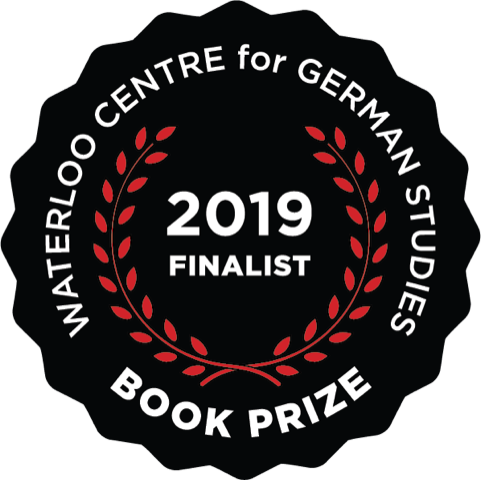Kata Gellen. Kafka and Noise: The Discovery of Cinematic Sound in Literary Modernism. (Northwestern University Press)


A series of disruptive, unnerving sounds haunts the fictional writings of Franz Kafka. These include the painful squeak in Gregor Samsa's voice, the indeterminate whistling of Josefine the singer, the relentless noise in "The Burrow," and telephonic disturbances in The Castle. In Kafka and Noise, Kata Gellen applies concepts and vocabulary from film theory to Kafka's works in order to account for these unsettling sounds. Rather than try to decode these noises, Gellen explores the complex role they play in Kafka's larger project.
What's the one key idea or message you want readers to take from your book?
Franz Kafka’s literary worlds are full of strange sounds—so strange, indeed, that approaching them with the conventional tools of historical and literary analysis yields limited results. Cinema scholars have developed a rich conceptual vocabulary to discuss sound and silence in film, including visualized sound, acoustic close-ups, disembodied voices, and non-diegetic sound. These terms and ideas prove remarkably productive for the exploration of sound in Kafka’s writing, from the squeak that invades Gregor Samsa’s voice to the mouse Josephine’s whistling, from the noise in the burrow to the silence of the sirens. These examples and many more demonstrate that Kafka uses noise to push at the limits of what can be perceived, known, and represented in literary fiction. The book’s central claim is that intermedial analysis—applying film concepts to literary sound—reveals that noise is a persistent obstacle to understanding and interpretation in Kafka’s writing, as well as a tool for grasping the contours of literary possibility.
What got you interested in the topic of your book?
Franz Kafka’s works are darkly absurd, profoundly philosophical, and surprisingly humorous. Each reading raises new questions for me. At one point, I found myself struck by the seemingly ubiquitous presence of uncanny noises, voices, and music in his writings. I quickly realized I was not going to be able to answer the question “what does all this noise mean?” and so I started looking at other issues, such as how noise is depicted in Kafka’s stories and novels, and what sorts of assumptions about the nature of listening, knowing, and representing were challenged by these sounds. Why is noise such a disruptive force in Kafka’s fictions? And what comes of all this disruption? These questions drove me throughout my research and writing.
Books answer questions, but they also raise new questions. What questions does your book raise?
My favorite part of the book is Chapter 4, where I argue that Kafka uses noise to raise the possibility of transcending “species worlds”—in other words, to explore the limits of what a member of a given species can experience and know, and the possibility of transcending those limits. Here Kafka is in dialogue with contemporary discourses from biology about Umwelt (Jakob von Uexküll) and philosophical skepticism about the limits of human knowledge (Friedrich Nietzsche). What can Kafka’s fictions tell us about the place of humans among other animal species? What can they tell us about the place of our world among all possible worlds? Kafka’s writings open up so many questions about experiential and cognitive horizons, and how we can contemplate not only grasping these horizons, but expanding them.
What are you currently reading, in your field or just generally, and what do you like about it?
I recently finished re-reading Joseph Roth’s 1934 novel Tarabas, which depicts an antisemitic pogrom in the Eastern borderlands of the former Austro-Hungarian Empire shortly after the end of the first World War. It is not among Roth’s most famous novels and was not considered a success, even by him, but I find it complex and disturbing. On the level of genre, it works both with Christian legend (the story of St. Julian the Hospitaller) and modern pogrom literature (by Maxim Gorki, Isaac Babel, and others). It also moves quickly between vastly different settings (the Galician shtetl and New York City). The clash of tradition and modernity is ever-present, as the novel examines such disparate themes as war, revolution, community, Jewish tradition, Christian faith, urban alienation, technology, violence, despair, sin, forgiveness, redemption, and existential homelessness.
